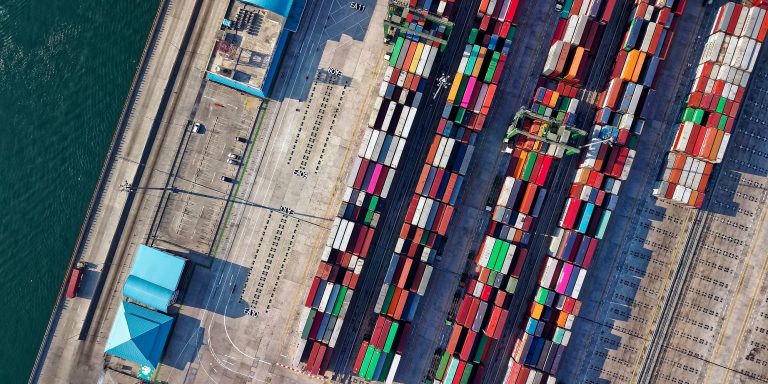Supply chain traceability is among the top use cases for Blockchain. Substituting the conventional methods with distributed ledger could boost U.S GDP by 5% and trade size by 15%.
Blockchain gives the capability of tracking any physical or digital product during its lifecycle. It has the competence to increase ethical and sustainable production, as well as the consumption of any product globally.
Nearly every business utilizes third-party producers or multiple products from various merchants before building and marking the production of products.
In a few instances, white-label products are traded before being relabeled and repackaged under a different brand. Transparency in tracking provides makers an aerial view into their worth chain, letting them ensure the usual handoff of intermediary assets and concluding product labeling.
You can track the development of assets, register the data, and display earlier asset reports. The implementation of smart contracts is done to drive the product tracking methods on the Hyperledger blockchain. Everyone can see the origin and journey of a product instantly, be it a digital or physical asset.
Blockchain Enhances Regulatory Compliance and Reporting
Regulatory and agreement reporting is a critical matter for pharmaceutical corporations provided their patients depend on prescription drugs. Besides, the supply chain has to prove effective while monitor medication overdose.
Automated agreements and reporting reduce counteraction and eradicate errors relating to manual activities. Blockchain compliance improves corporate governance by providing real-time data while effortlessly distributing it to stakeholders.
Moreover, the technology could develop compliance reports for prescriptions, medical devices, manufacturers, and additional user products.
How Does Blockchain Enable Goods Traceability?
From product recalls to customer packaged products, the global supply chain encourages everything. At times, there is a need to recall consumer goods to avoid illness or injury.
Between replacement costs, lost sales, and claims, recalls on user products negatively affect millions of people globally. Blockchain can improve goods traceability by decreasing counterfeiting and by efficiently enabling product recall.
Recalls grow less valuable and more productive when businesses can find affected goods swiftly and effortlessly. Blockchain facilitates a more traceable and transparent supply chain, thus enabling faster and more dynamic recalls
Blockchain Plays a Huge Role in Reducing Counterfeiting
According to the Global Brand Counterfeiting Report 2018, the value of counterfeit products worldwide has reached 1.2 Trillion USD in 2017. It is expected to reach 1.82 Trillion USD by 2020, which consists of counterfeiting of different products or types of equipment from counterfeiting of watches and defense equipment.
Blockchain in its core is a decentralized, distributed ledger technology that is managed by smart contracts and directed by a consensus rule. The ledger records each transaction, which cannot be changed.
Relying on how one utilizes the ledger, it is can be a public or a permissioned ledger.
For supply chain processes, a Blockchain ledger can handle various activities from automated contract compliance among entities through smart contacts to track goods from manufacturing to distribution.
How Does Blockchain Manage Trade Ability in Supply Chain?
Blockchain allows for dynamic licensing and ownership. Confirming past ownership by regulated licensing methods is essential for many industries. The technology is utilized to efficiently license products, services, and software with the help of automated smart contract transactions.
Using blockchain in the supply chain can help participants record price, date, location, quality, certification, and other relevant information to more effectively manage the supply chain.
Finally, blockchain can streamline administrative processes and reduce costs by enabling an effective audit of supply chain data. Processes involving manual checks for compliance or credit purposes that may currently take weeks can be accelerated through a distributed ledger of all relevant information.
To know more about blockchain-driven supply chain innovations and find out more about how blockchain can improve your supply chain process contact us.








Be First to Comment